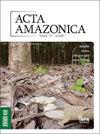Evaluation of fisheries management strategies using a biotic integrity index in floodplain lakes in the lower Solimões River, Amazonas, Brazil
IF 0.8
4区 环境科学与生态学
Q4 ECOLOGY
引用次数: 0
Abstract
ABSTRACT Fisheries is an important activity in the Amazon basin and potentially has a high impact on ichthyofauna. With the aim of achieving sustainability in fisheries of target species, protected areas were established within a fisheries management framework known as the Amazon Lakes Management System (ALMS). With the aim to evaluate the effect of ALMS on fish assemblages as a whole, we compared floodplain lakes with different levels of fish management in the lower Solimões River, in the Brazilian Amazon, developing an index of biotic integrity, named ALMS-IBI. We sampled fish in three lake categories: protected (PR), managed (MN), and commercially fished (CM). The ALMS-IBI was developed by selecting and testing fish assemblage metrics based on samplings carried out in 2017 and 2018, using gillnets with different mesh sizes. We captured 4565 fish of 113 species and seven trophic categories. The final index is composed of seven metrics related to species richness, trophic structure, and fish abundance, and characterized the fish assemblage in the PR and MN lakes as acceptable, and in the CM lakes as poor. Our results indicate that the ALMS-IBI can be an efficient method to monitor the whole fish assemblage in Amazonian floodplain lakes, and can be used as a complementary tool in the ALMS to assess environmental sustainability.利用生物完整性指数评价巴西亚马逊河下游Solimões河漫滩湖泊的渔业管理策略
渔业是亚马逊流域的一项重要活动,对鱼类有很大的潜在影响。为了实现目标物种渔业的可持续性,在被称为亚马逊湖管理系统(ALMS)的渔业管理框架内建立了保护区。为了从整体上评估ALMS对鱼类群落的影响,我们比较了巴西亚马逊河下游Solimões河不同鱼类管理水平的洪泛平原湖泊,开发了一个生物完整性指数,名为ALMS- ibi。我们对三种类型的湖泊进行了采样:保护(PR)、管理(MN)和商业捕捞(CM)。ams - ibi是根据2017年和2018年进行的采样,使用不同网目尺寸的刺网,选择和测试鱼类组合指标而开发的。共捕获7个营养类113种4565条鱼类。最终指数由物种丰富度、营养结构和鱼类丰度等7个指标组成,表明PR和MN湖的鱼类组合可接受,而CM湖的鱼类组合较差。研究结果表明,ALMS- ibi可作为监测亚马逊河漫滩湖泊全鱼群落的有效方法,并可作为ALMS评估环境可持续性的补充工具。
本文章由计算机程序翻译,如有差异,请以英文原文为准。
求助全文
约1分钟内获得全文
求助全文
来源期刊

Acta Amazonica
PLANT SCIENCESECOLOGYZOO-ECOLOGY
CiteScore
1.70
自引率
0.00%
发文量
34
审稿时长
22 weeks
期刊介绍:
Acta Amzonica is a multidisciplinary, peer-reviewed, open access, free-of-charge scientific journal for research in and about the Amazon region, published since 1971 by the Instituto Nacional de Pesquisas da Amazônia - INPA, in Brazil.
The journal publishes quarterly issues containing articles and short communications in English across a broad range of disciplines, including Agronomy and Forestry, Animal Sciences and Fisheries, Biodiversity and Conservation, Biotechnology, Chemistry and Pharmacology, Environmental Sciences, Food Sciences, Geosciences, Health Sciences, Human and Social Sciences, and Materials Technology.
 求助内容:
求助内容: 应助结果提醒方式:
应助结果提醒方式:


